Protein is vital to our body. But he is especially respected by athletes, because this is the main “building material” for muscles. In order for them to grow and gain strength faster, they need a lot of protein - it’s impossible to get so much from ordinary food (you can hardly eat 5 kg of beef or a couple dozen boiled eggs in one sitting). But from a few grams of dry protein, you can make a nutritious cocktail that will saturate the body with useful amino acids and give the muscle tissue the necessary amount of protein. And note - without any ballast like fats and carbohydrates.
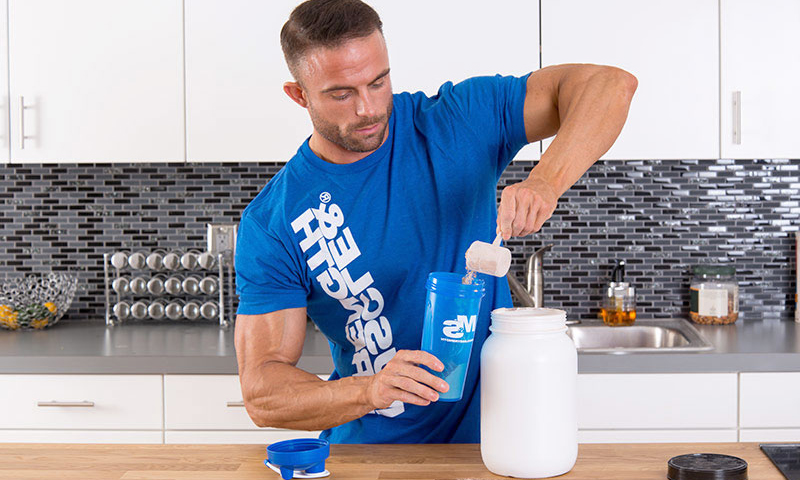
Content:
The best protein manufacturers - which company to choose
High-quality protein can be purchased in specialized stores, but not on the market or with hands.
It is better to take sports nutrition from proven manufacturers who have been working in this field for at least 3-5 years:
- Optimum Nutrition;
- Dymatize;
- Weider;
- BSN;
- Muscle Pharm.
The products of these companies are distinguished by a high degree of purification, good digestibility and a pleasant taste. You can get acquainted with all the advantages of the best protein supplements from famous brands in our ranking.
However, any bodybuilder will tell you that you need to select protein shakes individually, taking into account all the features of your body. Only in this way you can achieve the maximum effect from their use.
The composition and effects of protein on the body
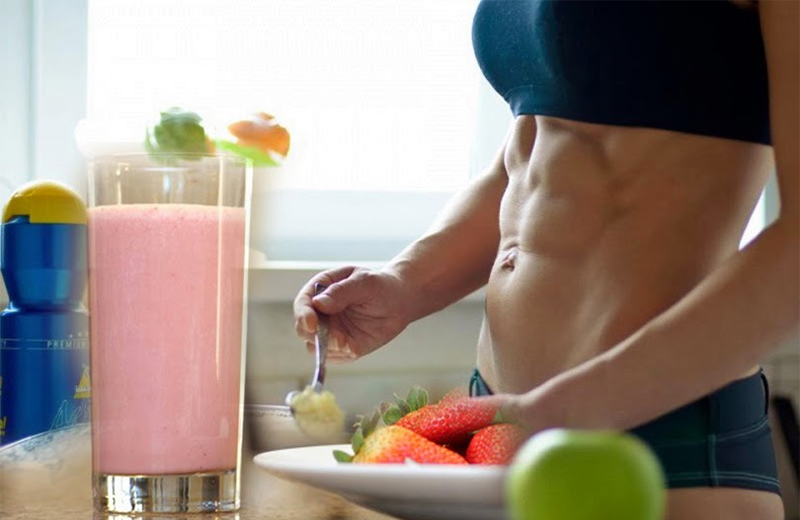
Protein is extracted from natural products, that is, it is an extract obtained from the same food that we eat every day - meat, fish, milk, legumes, and cereals. It contains about 70-90% protein, the rest of the mixture is vitamins, creatine, carbohydrates and other substances necessary for the body.
The main task of protein supplements is to provide the fastest possible set of muscle mass. Once in the body, the protein is broken down into amino acids and absorbed by the blood. Further, it is transferred to the muscle tissue, strengthening its structure and making it denser.
However, there are protein supplements that help you lose weight: they support the health of the muscles, forcing the body to extract energy reserves from stored fat, and not from muscles.
Types of protein
Whey
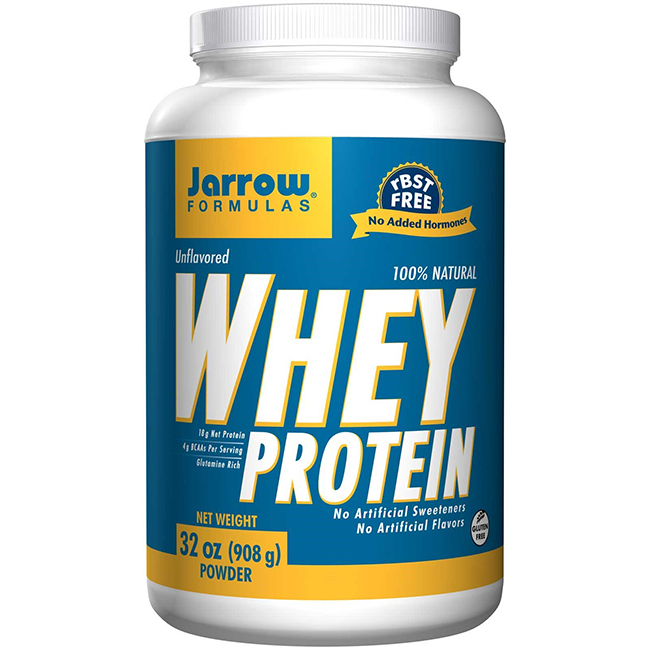
This type of protein is obtained from boiled whey, in which, under the action of high temperature, the milk protein is folded and easily separated from the rest of the liquid. It is quickly broken down and absorbed by the body (approximately within 2 hours) and is an excellent regenerating agent after serious physical exertion.
It is also recommended to take it in the morning to stop catabolism - the process when an organism hungry for the night begins to draw energy from muscle tissue.
The protein after heat treatment and filtration of whey can undergo additional purification from fats and carbohydrates or be sent to the shelves "as is".
Depending on how high the filtration degree of the finished product is, there are three sub-types of such additives:
1. Concentrate - the most affordable option. It contains about 60-80% protein, the rest is fat and carbohydrates. Concentrated protein is obtained in the first stage of filtration of serum.
2. Isolate - does not contain lactose and is absorbed faster concentrate. In it, protein takes up to 92-95%, and fat content does not exceed 1%. This degree of purification is achieved by microfiltration or by reverse osmosis.
3. Hydrolyzate - here the protein molecules are already split into amino acids, which are instantly absorbed by the body and immediately enter the general bloodstream.
Pros:
- Perfect amino acid profile;
- Quickly absorbed and absorbed into the blood within 20-40 minutes;
- Excellent restores muscle fibers after enhanced workouts;
- It can be used both at the stage of drying, and at weight gain;
- It has a pleasant taste;
- Relatively inexpensive.
Minuses:
- Not suitable for people with intolerance to milk protein - the only exception is isolate.
Casein
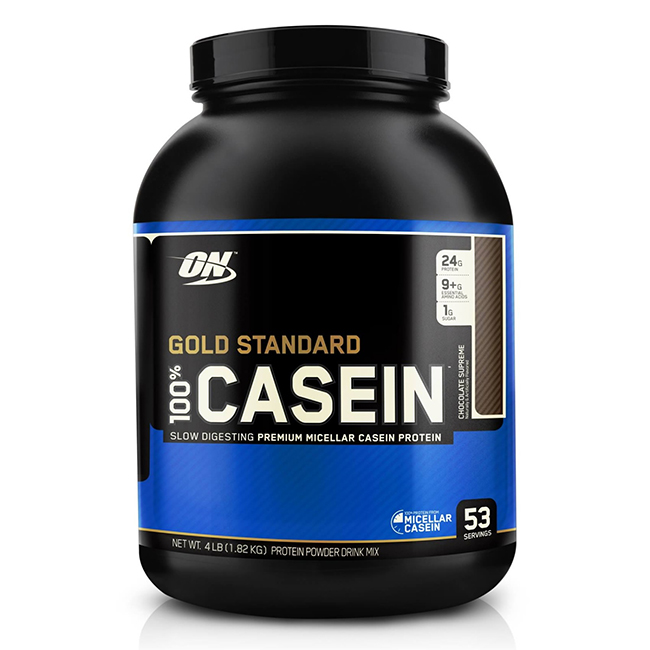
This protein is also obtained from milk, only pre-fat (buttermilk). It is absorbed very slowly - from 6 to 8 hours, gradually saturating the body with amino acids. Most often, it is taken for weight loss and body drying, because it for a long time quenches hunger.
Casein can be supplied in the form of split hydrolyzate or micellar protein, obtained by ultrafine filtration of milk. The latter is able to "feed" the body with protein for 10-12 hours.
Pros:
- Gives a long-lasting saturation effect and reduces appetite;
- Includes a rich set of amino acids;
- Stimulates muscle protein synthesis;
- It has a complete amino acid composition and contains a decent dose of calcium;
- Ideal for bedtime use, preventing muscle catabolism.
Minuses:
- As in the case of whey protein - is not suitable for athletes with lactose intolerance;
- Taste is an amateur.
Egg
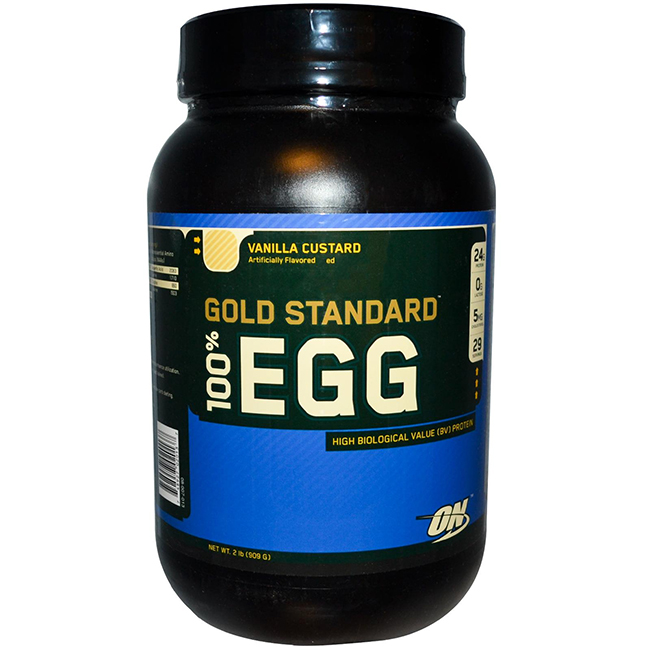
The so-called reference protein, in which there are no fats or carbohydrates, but there is almost all the amino acids necessary for the body, as well as a whole set of trace elements and vitamins.
It is produced from chicken eggs, removing the yolk and all moisture from them. This is the average speed of assimilation of protein, which begins to break down in the body within an hour after ingestion and feeds it within 4 hours.
Pros:
- Almost 100% digestibility;
- Rich in minerals, trace elements and vitamins;
- Does not contain fat;
- Dulls hunger;
- Excellent restores after workouts.
Minuses:
- Rarely available in pure form;
- Dear;
- It causes allergies in people who are sensitive to egg white.
Meat
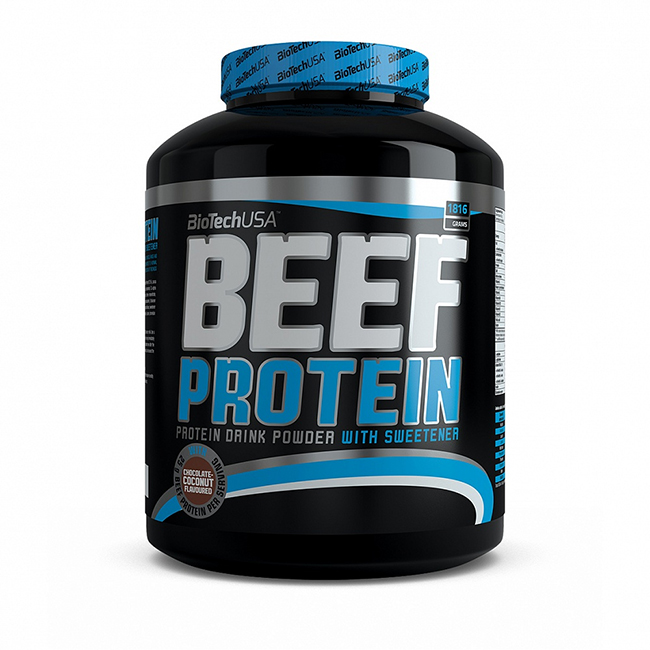
Its properties are close to the 85% serum isolate, but unlike it does not cause problems in people with lactose intolerance. Meat protein is usually obtained from beef and must be cleaned by removing cholesterol and fats.
Pros:
- Suitable for those who do not tolerate milk protein or gluten;
- It has a balanced composition of amino acids;
- Contains its own creatine;
- Quickly and almost completely absorbed by the body.
Minuses:
- It is not cheap;
- It has a bitter taste.
Vegetable
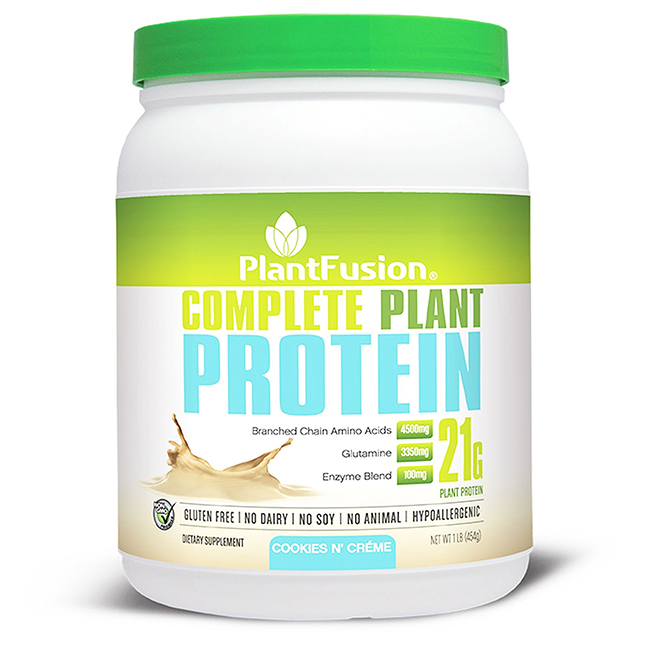
Vegetable protein is most often obtained from soy, but it can also be harvested from rice, peas, hemp or wheat. This is an acceptable option for vegetarians, although the amino acid profile here is very far from ideal. To improve the quality of vegetable protein, leucine is added to it, which really causes the muscles to grow.
Pros:
- Does not contain substances of animal origin;
- It has an average absorption rate;
- One of the cheapest options for protein.
Minuses:
- Incomplete digestibility;
- The poor composition of amino acids;
- Frequent use and large doses provoke flatulence.
Vegetarians should look at hemp proteins. Their composition is richer than that of soy extract, which allows to somehow compensate for the lack of animal protein in the diet.
Protein selection options
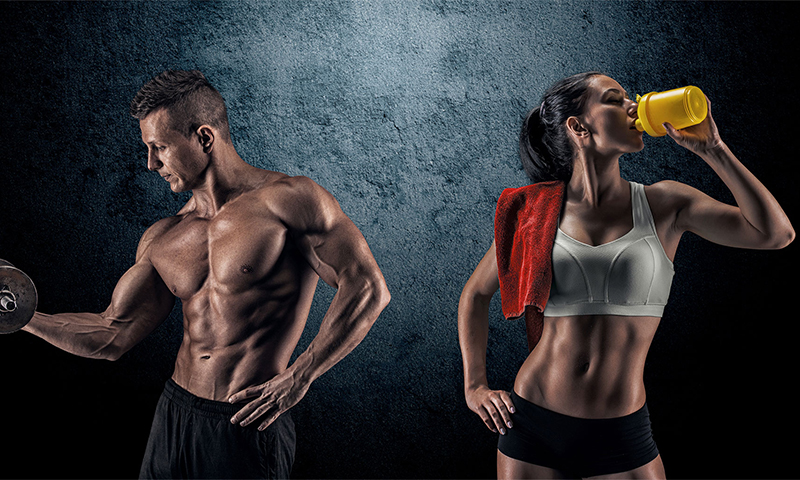
Amino acid profile
Protein is the main component of the protein powder, but under this general name hides entire groups of numerous acids, which determine the nutritional value of a particular additive.
A good mixture should contain 18 amino acids, including BCAA with branched chains, responsible for building muscle and burning excess fat.The BCAA family is represented by the three essential amino acids (leucine, isoleucine and valine) - the higher their percentage in the powder, the better.
Alas, manufacturers do not always indicate the profile of their product, so you have to focus on the average indicators for different types of protein:
1. Whey and casein - contain all the necessary amino acids of the protein, while about half are indispensable. The percentage of BCAAs here is also the highest.
2. Albumin (egg) - despite its complete digestibility, is not as good as the proteins of dairy products. It lacks 2 essential amino acids - lysine and valine (the second is in the BCAA group).
3. Beef - contains the necessary amino acids and even the obligatory trinity with branched chains, but in very small quantities, if you do the conversion to the mass of protein.
4. Vegetable - is something average between egg and meat protein, contains 16 of 18 protein amino acids.
Ingredients and optional ingredients
Often on the shelves you can see multicomponent protein supplements, including 2-3 varieties of proteins. In this case, you should carefully examine the composition on the back of the package: the substances that are in the mixture most often should be listed among the first.
That is, if soy protein is first recorded, and then whey protein, then you have in your hands only a herbal supplement enriched with dairy components - whatever the large letters on the label promise.
Pay attention to the percentage of fat and carbohydrates in the protein powder - there should be no more than 3-4%. But the presence of dietary fiber can bring considerable benefits to your digestive tract. They improve the absorption of protein shakes, as well as eliminate the traditional side effect of the protein “diet” - gas formation in the intestines.
Protein mixes may contain flavoring additives: chocolate, fruit, vanilla, etc. Here everything depends on your preferences. But remember that you will have to drink protein shake every day, so buy products with unobtrusive and pleasant taste. Or take a few different ones and eat them alternately.
The main thing is that the protein does not have harmful artificial sweeteners:
1. Sakharin;
2. Aspartame;
3. Cyclamate
Contraindications
There are few contraindications for taking protein, but they still exist.
The main ones are:
1. Individual lactose intolerance;
2. Diarrhea;
3. Allergy;
4. Frequent abdominal pain, colic, flatulence;
5. Renal failure.
If you have such problems, you will have to carefully select the type of protein or stop using it at all.
What protein to choose
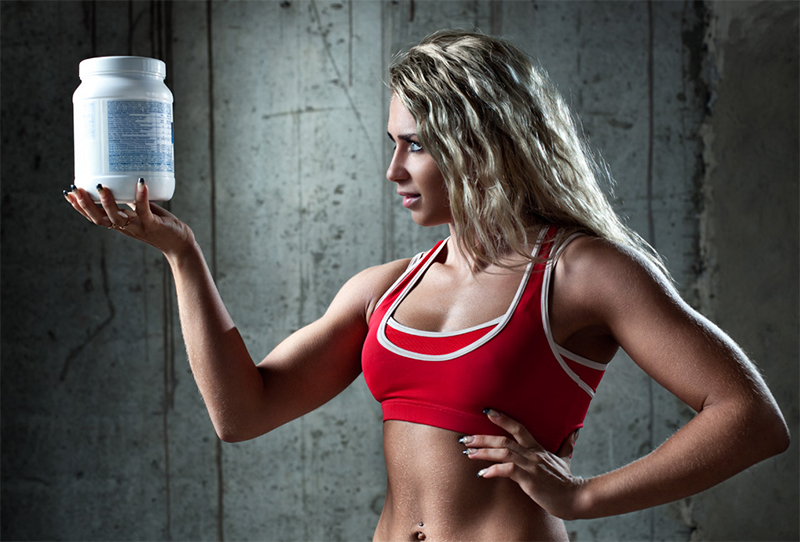
1. For good muscle growth is better to buy whey protein in the form of a concentrate. It quickly splits and almost immediately begins to feed the muscles with essential amino acids. Pay attention to the composition of the mixture - there should not be vegetable proteins, since they will reduce the concentration of the BCAA group. It is also worth adding hydrolyzate to your diet and drinking it directly after strength training.
2. Bodybuilders on drying need the most pure formulations - without fats and carbohydrates. They are suitable whey isolate, past microfiltration, and better reverse osmosis system. At night, it is advisable to drink a cocktail with casein - it will saturate the body for a long time and stop the catabolic processes that destroy muscle tissue.
3. People who want to lose extra kilos will need protein compounds with a low or medium absorption rate and an almost total lack of fat: egg, vegetable, casein or multicomponent - for which there is enough money. Digestive supplements are welcome.
4. Athletes with individual intolerance to milk is better to use whey isolate, meat, vegetable or egg protein. The last two products can be consumed in drying, beef protein when building muscle mass, and whey without lactose - in both cases.
5. In the days off between workouts, it is recommended to take a complex protein containing maximum nutrients and vitamins. The main thing is that the proteins contained in it have different digestibility rates.
How much is protein
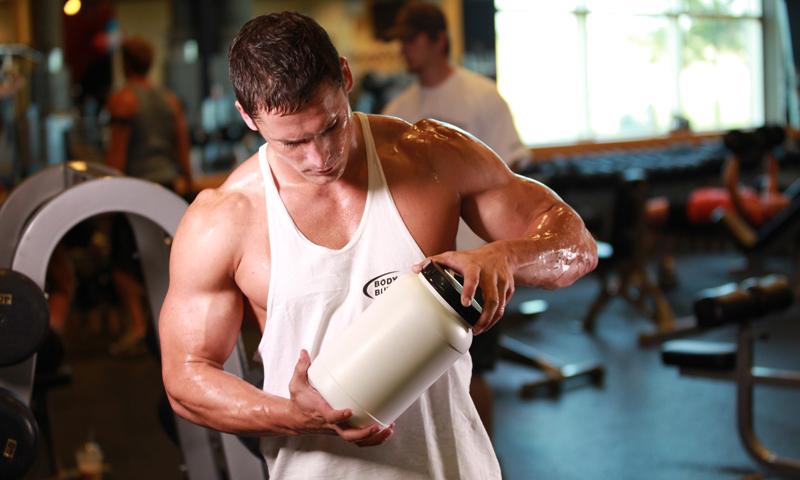
1. A small package of whey concentrate weighing half a kilogram can be bought at prices ranging from 400 to 1,400 rubles. Buckets of 4-5 kg will pull from 3.5 to 8.5 thousand.
2. Isolate in a 500-gram pack costs about 800-1200 rubles.
3. Serum hydrolyzate weighing 700-800 grams will cost from 1500 to 2000 rubles.
4. Pound packs of casein will pull on 600-900 rubles. The same will be the cost and egg albumin.
5. Beef protein usually comes in large jars weighing about 900 grams. In the stores they are asked for 1500-2300 rubles.
6. Dry protein of plant origin costs about 900-1000 rubles. for a standard package of 450-500 grams. But if soy was used as a raw material, the price will not be higher than 250-470 rubles.
7. Multicomponent compositions, depending on the ingredients used, cost from 250 to 1500 rubles.
It will be interesting to friends too










